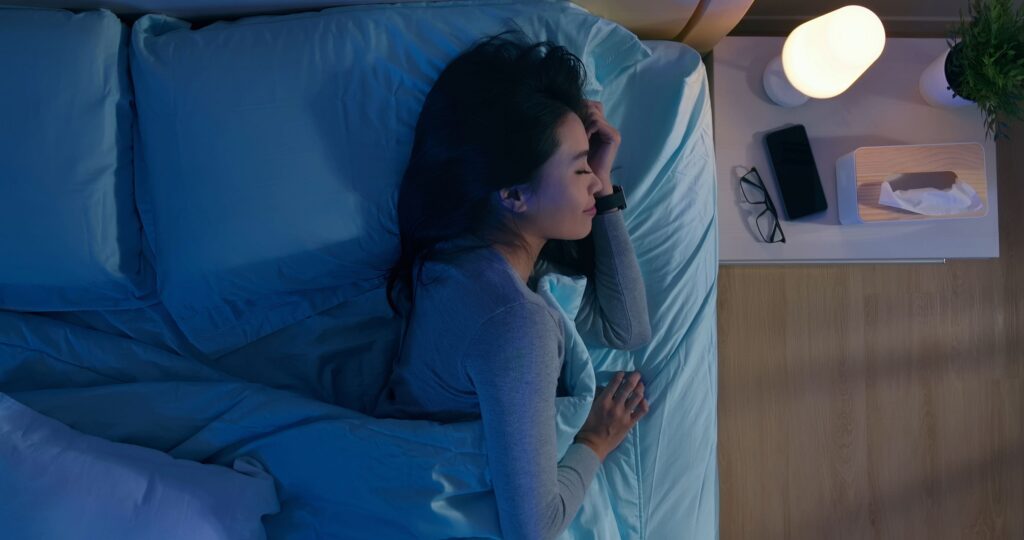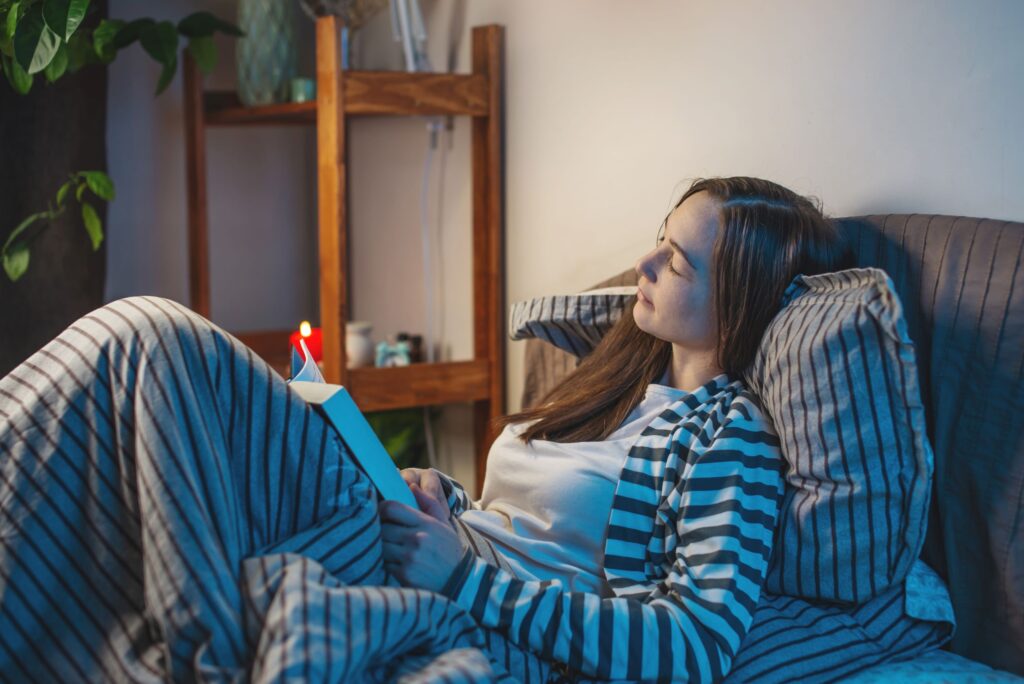Not Able To Sleep? 12 Tips To Sleep Better Every Night
A night of good sleep is necessary for optimal well-being, so it’s not surprising that sleep problems can have a negative effect on your mental and physical health.
Trouble sleeping is a regular struggle for some people. Despite not always being the most pleasant topic of discussion, sleep deprivation is something that many people are grappling with these days.
It’s perfectly normal to have the occasional bad night’s sleep when you don’t get enough rest – but if you regularly find yourself fighting off fatigue in order to keep your eyes open during the day then insomnia might just be impacting how much enjoyment you’re able to experience from activities like watching television or going out at night.
The sad truth is that when we don’t sleep enough, we are tired and grouchy the next day. Sleeping well should be an essential part of our life for a number of reasons: it’s good for our emotional and physical health as well as to reset properly without taking any sleep medicine.
There are many things that can disrupt your sleep, like body temperature, natural light and caffeine. But what you can do to improve it? The good news is, there’s something you can do about it! To improve your sleep, try these 12 nighttime rituals that you can do before going to bed.
1. Stop The Screens
It’s pretty hard to sleep when you’re on your phone, tablet or laptop. These devices emit blue light that can prevent your brain from producing melatonin. As a result, you will find it harder to fall asleep quickly. To get a good night’s sleep, put down the electronics at least an hour before bedtime.
The bright light from electronics can interfere with your body’s natural sleep cycle and prevent you from falling asleep easily when nighttime comes around. Also, try reading a book instead of watching TV or using electronics before bedtime if you want to get better quality sleep every night of the week.
2. Keep Cool
Your body temperature drops when you sleep so if you’re too hot, it could make it more difficult for you to fall asleep and more difficult for your body to get into the proper rhythm of sleeping and waking up again. If possible, adjust the thermostat in your bedroom or try using a fan or air conditioner to keep things cool at night time. You can also try wearing lighter-weight clothing during the summer months for optimal comfortability during sleep.
3. Don’t Overdo It On Caffeine Before Bedtime
Caffeine stays in your system for hours after drinking it, which means that it can interfere with your sleep even if you have only one cup of coffee late in the day. If possible, try to avoid caffeine for at least six hours before going to bed each night. If this isn’t possible, then try drinking decaf so that it doesn’t interfere with your sleep cycle when nighttime arrives.

4. Create A Sleep Schedule And Stick To It Consistently
Getting up at different times every day makes it hard to fall asleep consistently every night. Try writing down a schedule of when you need to wake up and go to bed every day on your sleep diary so that your body knows exactly when it needs to start preparing for sleep and a good night’s rest. Also, try not doing anything too stimulating right before bedtime so that you can fall asleep faster and get the most restful sleep you need.
5. Eat A Light Dinner And Avoid Eating Too Late At Night
Eating a big meal before bedtime can make your body work harder to digest the food and prevent it from relaxing enough to fall asleep. If possible, try eating dinner early in the evening and then sticking to light snacks or drinks in the few hours before going to bed. Also, try not eating anything at all for at least two hours before going to sleep so that your body is completely ready for sleep when nighttime comes.
6. Avoid Drinking Alcohol Before Bedtime
Drinking alcohol before bedtime can make it harder for you to fall asleep at night and can disrupt your sleep cycle throughout the night because of how alcohol affects your body. If possible, try limiting your consumption of alcohol before bedtime to avoid waking up in the middle of the night or having trouble falling asleep at night because alcohol might be in your system.
7. Make Your Bedroom As Dark As Possible
Light from the sun, street lights, and other sources can keep you awake at night if your bedroom isn’t completely dark when nighttime rolls around. If possible, try blocking out as much light as possible in your bedroom so that it’s easier to fall asleep when nighttime arrives and stay asleep all night long. In addition to turning off electronics before bedtime, try covering windows with dark curtains or even painting them black so that you don’t have to worry about waking up early in the morning because of sunlight coming into your room during the night.
8. Exercise Regularly
Exercising regularly can help you fall asleep faster and get better quality sleep every night of the week. Try exercising at least 30 minutes a day, 5 days a week, so that your body is more prepared for sleep at night when nighttime rolls around. Also, try exercising right before bedtime if you have time so that your body has a chance to relax after exercise, then, a warm bath after and prepare for sleep when nighttime comes around.

9. Don’t Take Long Daytime Naps
Taking long naps during the day can make it hard for you to fall asleep at night. If possible, try limiting your nap time to 45 minutes or less each day so that you can adjust your body clock and better sleep cycles to make nighttime easier. Also, try avoiding napping after 4 p.m. so that your body doesn’t get used to falling asleep too early in the evening.
10. Get A Good Mattress
You know how important proper posture is when it comes to sitting at your desk, but did you know that the same applies when it comes to sleeping? A good mattress is essential for preventing back pain and other issues that can arise from improper posture while sleeping.
Your mattress should be firm enough to support your body, but soft enough that it contours to the shape of your body, giving you proper support and alignment for healthy sleep. A softer mattress may be more comfortable in the short term, but in the long term it will likely result in back pain and other issues.
11. Aromatic candles
Light some candles to create a soothing sleep environment. It’s hard to feel stressed in a room full of flickering flames! Make sure you blow them out before going to have a restful sleep though, or you might wake up with more than just tired eyes.

12. Use An App To Track Sleep Quality
Using an app which monitors your sleep patterns and wakes you up at the optimal time within your sleep cycle, can help improve your sleep quality so that it will be easier for you to fall asleep at night and stay asleep all night long without being woken up by sunlight coming into your bedroom through windows during the middle of the night.
Customizing a routine for yourself is necessary to make your sleep sacred. A restful night of sleep is important and so you should treat it as such. You deserve time for yourself, focus on it and even sometime during the night to rest! Repeat this process each day in order to be successful at being rested
Developing your ritual is a fun way to enjoy life. All you need to do is practice for 30 days and see how it goes! You’ll be feeling better and sleeping more since stress will be reduced!






